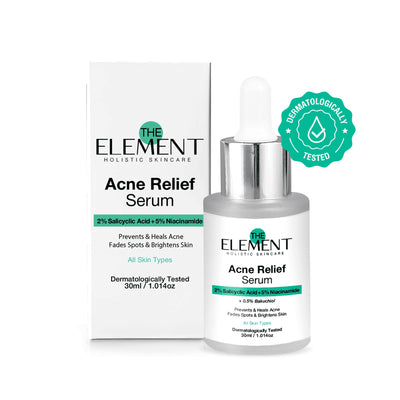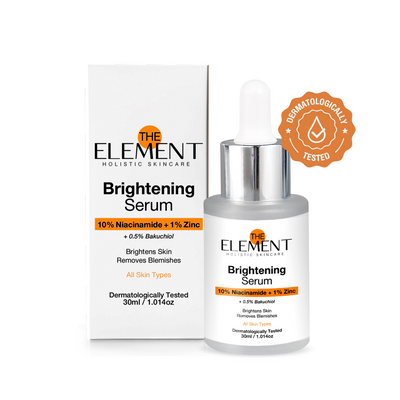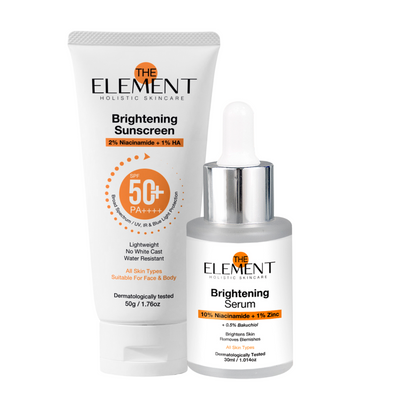Allantoin: Benefits, Uses, and Its Role in Skincare

Introduction
When it comes to achieving smooth, hydrated, and radiant skin, few ingredients are as versatile and effective as allantoin. Known for its soothing and healing properties, allantoin has become a staple in many skincare products, from moisturizers to serums. But what exactly is allantoin, and why is it so beneficial for your skin? In this article, we’ll explore everything you need to know about allantoin, including its uses, benefits, and how it can transform your skincare routine. Whether you’re dealing with dry skin, irritation, or simply looking to enhance your skin’s natural glow, allantoin might just be the ingredient you’ve been searching for.
What Is Allantoin?
Allantoin is a naturally occurring compound found in plants like comfrey, chamomile, and sugar beets. It can also be synthesized in laboratories for use in skincare and cosmetic products. Known for its non-irritating and gentle properties, allantoin is widely used in dermatology to promote skin healing, hydration, and regeneration.
According to Dr. Jane Smith, a board-certified dermatologist, “Allantoin is a powerhouse ingredient that works for all skin types, especially sensitive and dry skin. Its ability to soothe and repair makes it a go-to for many skincare formulations.”
Allantoin Uses for Skin
Allantoin is a multi-functional ingredient that offers a range of benefits for the skin. Here are some of its most common uses:
1. Hydration and Moisturization
Allantoin acts as a humectant, which means it helps the skin retain moisture. By forming a protective barrier, it prevents water loss and keeps the skin hydrated, soft, and supple.
2. Soothing Irritation
If you struggle with redness, itching, or irritation, allantoin can provide relief. Its anti-inflammatory properties calm the skin, making it ideal for conditions like eczema, psoriasis, and rosacea.
3. Promoting Skin Healing
Allantoin stimulates cell regeneration, which helps repair damaged skin and accelerate wound healing. This makes it a popular ingredient in products designed for acne scars, cuts, and burns.
4. Exfoliation
Allantoin gently removes dead skin cells, promoting a smoother and brighter complexion. Unlike harsh exfoliants, it’s gentle enough for sensitive skin.
5. Anti-Aging Benefits
By improving skin texture and hydration, allantoin reduces the appearance of fine lines and wrinkles. It also enhances the skin’s elasticity, giving it a youthful glow.
Benefits of Allantoin in Skincare
1. Suitable for All Skin Types
One of the standout features of allantoin is its compatibility with all skin types, including sensitive and acne-prone skin.
2. Non-Irritating and Gentle
Unlike some active ingredients that can cause redness or peeling, allantoin is incredibly gentle, making it a safe choice for daily use.
3. Enhances Product Efficacy
Allantoin often works synergistically with other skincare ingredients, enhancing their effectiveness. For example, it pairs well with hyaluronic acid for hydration and niacinamide for soothing.
4. Affordable and Accessible
Despite its numerous benefits, allantoin is an affordable ingredient found in a wide range of skincare products, from drugstore brands to luxury lines.
Challenges of Using Allantoin
While allantoin is generally safe and well-tolerated, there are a few considerations to keep in mind:
- Allergic Reactions: Though rare, some individuals may experience mild allergic reactions. Always perform a patch test before using a new product.
- Concentration Levels: The effectiveness of allantoin depends on its concentration in a product. Look for formulations with at least 0.5% allantoin for optimal results.
How to Incorporate Allantoin into Your Skincare Routine
Adding allantoin to your skincare routine is simple, thanks to its versatility. Here’s how you can use it:
- Cleansers: Start your routine with a gentle cleanser containing allantoin to soothe and hydrate your skin.
- Serums: Apply a serum with allantoin to target specific concerns like dryness or irritation.
- Moisturizers: Lock in hydration with a moisturizer that includes allantoin as a key ingredient.
- Sunscreen: Some sunscreens also contain allantoin to provide added protection and soothing benefits.
The Future of Allantoin in Skincare
As the demand for gentle and effective skincare ingredients grows, allantoin is expected to remain a popular choice. Innovations in formulation technology may lead to even more advanced products featuring allantoin, such as targeted treatments for specific skin conditions.
Dr. Emily Carter, a skincare researcher, notes, “Allantoin’s versatility and safety profile make it a timeless ingredient. We’re likely to see it incorporated into more innovative skincare solutions in the coming years.”
Conclusion
Allantoin is a game-changing ingredient that offers a wide range of benefits for the skin, from hydration and soothing to healing and anti-aging. Its gentle nature makes it suitable for all skin types, and its affordability ensures it’s accessible to everyone. Whether you’re new to skincare or a seasoned enthusiast, incorporating allantoin into your routine can help you achieve healthier, more radiant skin.
Ready to experience the benefits of allantoin for yourself? Start by exploring products that feature this incredible ingredient and see the difference it can make in your skincare journey.
FAQs About Allantoin
What is allantoin used for in skincare?
Allantoin is used to hydrate, soothe, and heal the skin. It also promotes cell regeneration and gently exfoliates for a smoother complexion.
Is allantoin safe for sensitive skin?
Yes, allantoin is non-irritating and safe for sensitive skin. It’s often recommended for conditions like eczema and rosacea.
Can allantoin help with acne scars?
Allantoin promotes skin healing and cell regeneration, which can help reduce the appearance of acne scars over time.
How often can I use products with allantoin?
Allantoin is gentle enough for daily use. You can incorporate it into your morning and evening skincare routines.
What products contain allantoin?
Allantoin is found in a variety of skincare products, including cleansers, serums, moisturizers, and sunscreens.
By incorporating allantoin into your skincare routine, you can enjoy its soothing, hydrating, and healing benefits. Explore products with allantoin today and take the first step toward healthier, glowing skin!






